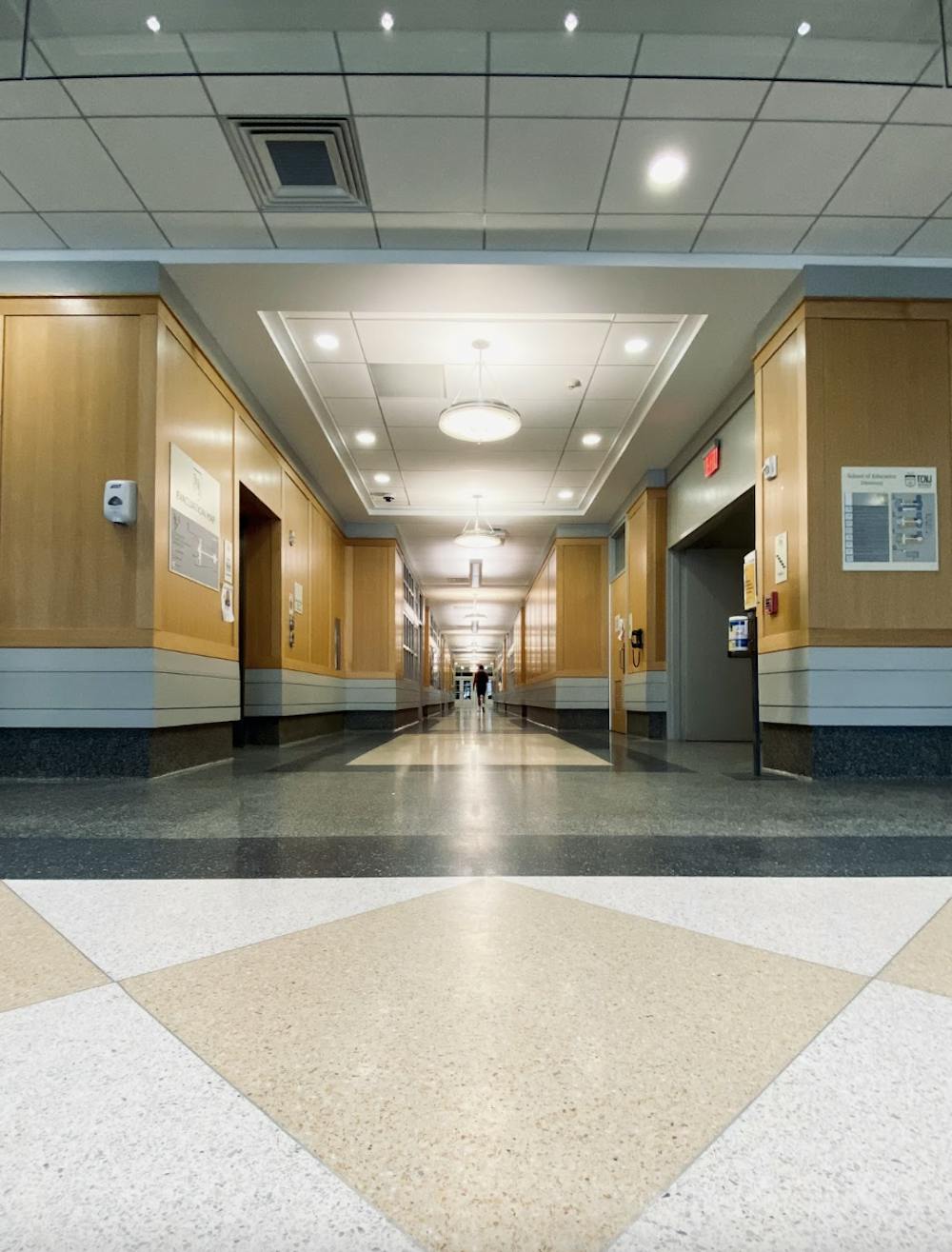By Elliott Nguyen
Managing Editor
At every open-house, on every tour, universities make a promise to students that they will be taken care of, and that they will be put on the path to success. It is an important promise both to make and to keep, because the university decision is a loaded one. Much consideration goes into it, and many consequences — for better or for worse — come of it.
For the College, it is no different. It ranks highly in the North region — it was named the top public school in the North region and the seventh best in undergraduate teaching. It has upheld this reputation by providing quality education and, specifically for students in the School of Education, getting them into classrooms early.
When the Covid-19 pandemic struck the world and shut down schools, the difficult question of how the College would fulfill its promise to its students fell upon the administration to answer.
“We really had to make a hard call about what to do with our field experiences,” said Eileen Heddy, the director of the Support for Teacher Education Programs (STEP) office. The STEP office primarily helps place students into their assignments for what Heddy referred to as “field experiences,” which include practicums and clinicals.
With this dilemma suddenly thrust upon them, the administration decided to focus its efforts on making sure that upperclassmen were able to fulfill their clinicals — the later field experiences in which they actually run the classroom and are eventually assessed on their performance.
However, when it came to practicums — earlier field experiences, typically for underclassmen, in which students observe professional teachers in a classroom setting — they simply weren’t in the cards.
Some students have voiced complaints as a result, but there was only so much the College could do, and they really did try, Heddy said.
“Schools were just not able to host our students,” Heddy said. “They were far too overwhelmed to arrange the placements and they also were very concerned about expanding their risk and exposing their students to more people.”
Ultimately, she said, it came down to trying to find a happy medium.
“Just trying to find a balance between the needs of our students, our desires to get our students into schools while trying to understand the stress they were under,” Heddy said. “We could only push so hard.”
In response, the School encouraged its faculty to find other ways to engage their students. They did so with things like virtual observation, projects and a simulation software called Mursion that allows students to practice leading a classroom full of avatars that are controlled in real-time by operators.
One professor, Dr. Lauren Madden, partnered with alumna Sabrina Lucchesi to have some of her students build garden beds for Eldridge Park Elementary School. Because it was outdoors, they were able to do so while remaining safe from Covid-19.
“It wasn’t the same as getting to be in a classroom,” said Madden, who teaches elementary and early childhood education at the College. However, she said, “our students got to interact with kids and teach them how to use tools.”
That project aside though, Madden still had difficulties helping her students make up for their lost experience.
“It was challenging,” she said. “One of the most important parts of learning how to be a teacher is to actually interact with children. Be a peer in a building. Work with colleagues.”
Madden had been on sabbatical when the pandemic first began, and resumed teaching in the fall of 2020. When she did return to teach the senior capstone course, she found that her students required “logistical, social and emotional support.”
Having helped coordinate the hybrid learning program, Madden said she heard from students about some of the frustrations they had with the school.
She added that some of her students performed student teaching through the global program, at such locations as an international school in Prague. She noticed similar problems for them. “Everyone around the world has the same issues,” she said.
As a result, she has been in regular contact with her students about their personal wellbeing, not just their performance in class.
“There’s a lot going on, it’s really important that as faculty we do what we can to check-in.”
Despite the loss of valuable experiences, Madden and Heddy both asserted that the future is still bright for their students.
“Our student teachers have a reputation,” Heddy said. She said that as the pandemic dragged on and schools gradually began reopening in-person activities, they were more amenable to hosting students from the College.
“As the pandemic went on, teachers realized how useful students could be,” she said.
For Madden’s part, she pointed out the resilience of her students.
“I was blown away by how unbelievably tech-savvy our students were at managing half the class in person and half the class online,” Madden said. “Students at TCNJ have stepped up in unbelievable ways to serve the local schools and its showing. Not just from local schools but around the world.”







